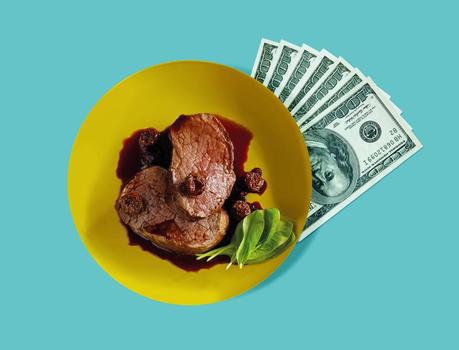
Last week, we saw headlines suggesting that a global meat tax could save hundreds of thousands of lives and billions of health-care dollars annually.
CNBC: Health experts propose a red meat tax to recoup $172 billion in health care-costs Daily Mail: First sugar, now red meat? Taxing beef, lamb and pork "could prevent about 220,000 deaths and save more than £30.7 billion in healthcare costs around the world each year" BBC: Should there be a tax on red meat?The headlines all stem, not from global policymakers' serious consideration of such a tax, but rather, from a single modeling study out of the University of Oxford, published last week in PLOS. A modeling study is more "academic exercise" than rigorous science.
Of course, the whole notion that red meat contributes to increased rates of chronic disease is based on weak epidemiological evidence, a type of evidence that needs to be tested in randomized clinical trials to establish causation. These trials have never been conducted. So, in spite of the compelling headlines that this modeling study generated, the whole premise on which it is based (that red and/or processed meat consumption increases rates of chronic disease) is tenuous at best.
Moreover, beyond the fact that the entire premise for a meat tax may be false, there are a couple of other realities about a meat tax that are particularly grating. Nutritionists broadly agree that meat is a nutrient dense, protein-packed food, and adequate protein is important for health. If a use tax reduces meat consumption, there is no guarantee that people will replace the lost meat calories with foods like broccoli and lentils, which are presumed to be healthier; it is just as likely (or perhaps more likely) that nutritionally depleted (but tasty) processed foods made with refined carbohydrates and vegetable oils would be the replacement of choice. That switch would diminish health, not improve it.
In addition, this sort of tax is regressive, which means it would hit poor and malnourished populations harder than more affluent groups. A big jump in the cost of meat is likely to push budget-conscious shoppers towards inexpensive and highly processed calories. This would be anything but helpful for those who are already struggling to make ends meet (pun intended).
For a longer look at the issue of a meat tax, consider the following post by Diana Rodgers, RD:
Sustainable Dish: Is a meat tax a good idea?
